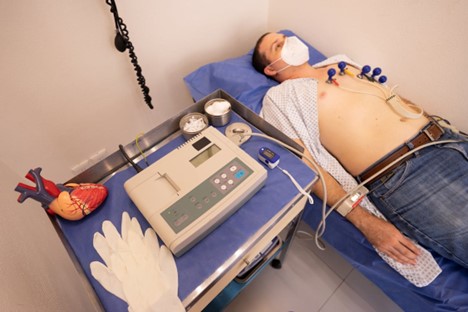Healing After the Race: How to Optimize Your Post-Marathon Recovery Plan
Completing a marathon is an extraordinary achievement. Crossing the finish line symbolizes months of dedication, grueling training, and sheer mental toughness. However, the journey doesn’t end there. What you do after the race can significantly impact how well your body recovers and prepares for your next challenge. Here’s how to craft a recovery plan that ensures optimal healing and sets you up for future success.
- Celebrate Your Achievement
Before diving into recovery mode, take a moment to savor your accomplishment. Reflect on your hard work and let the sense of pride fuel your motivation for the future. Sharing your experience with friends, family, or fellow runners can also make the victory feel even more meaningful.
- Immediate Post-Race Recovery
The hours following a marathon are crucial for minimizing muscle soreness and jumpstarting your body’s healing process:
- Rehydrate: Replace fluids lost during the race with water, electrolyte drinks, or coconut water. Staying hydrated aids in flushing out toxins and replenishing vital minerals.
- Refuel: Within 30 minutes post-race, consume a balanced snack rich in carbohydrates and protein. A smoothie with banana, protein powder, and almond milk is a great option to kickstart muscle repair.
- Cool Down: Engage in light walking or gentle stretching to prevent blood pooling and stiffness.
- Active Rest
While resting is critical, complete inactivity can prolong recovery. Incorporate active rest into your plan:
- Gentle Movements: Include low-impact activities like yoga, swimming, or leisurely cycling to boost circulation and reduce muscle tension.
- Foam Rolling: Spend a few minutes each day foam rolling to release tightness and promote muscle repair.
- Compression Gear: Wearing compression socks or sleeves can improve blood flow and reduce swelling in fatigued muscles.
- Focus on Sleep
Quality sleep is your body’s most powerful tool for recovery. Aim for 7-9 hours of uninterrupted sleep nightly. Create an environment conducive to rest by reducing screen time before bed, keeping the room cool, and using blackout curtains.
- Address Soreness and Injuries
- Ice Baths: Taking a cold bath or applying ice packs to sore areas can alleviate inflammation and pain.
- Massage Therapy: A professional massage, 24-48 hours after the race, can help release lactic acid buildup and improve muscle flexibility.
- Seek Medical Attention: If you experience persistent pain or suspect an injury, consult a healthcare professional to rule out serious issues.
- Nourish Your Body
Your body craves nutrients to repair and rebuild:
- Anti-Inflammatory Foods: Incorporate turmeric, ginger, berries, and leafy greens into your diet to combat inflammation.
- Protein-Rich Meals: Lean meats, eggs, tofu, and legumes support muscle recovery.
- Carbohydrates: Replenish glycogen stores with whole grains, sweet potatoes, or quinoa.
- Gradual Return to Running
Avoid rushing back into intense training. Follow the rule of thumb: take one day of rest or light activity for every mile raced. Gradually reintroduce running with short, easy-paced runs and increase intensity only when your body feels ready.
- Mental Recovery
Marathons are as much a mental challenge as a physical one. Post-race blues are common, as the high of the event fades. To counter this:
- Set New Goals: Whether it’s another marathon or a different fitness pursuit, having a fresh objective can reignite your enthusiasm.
- Practice Mindfulness: Meditation or journaling can help process emotions and maintain a positive mindset.
- Track Your Progress
Keep a recovery journal to note how your body feels each day. Record any soreness, fatigue, or improvements. This practice helps you stay attuned to your body’s needs and make informed adjustments to your routine.
To learn more, check out this summary from Prime Health.
By prioritizing hydration, nutrition, rest, and gradual reintroduction to activity, you’ll give your body the care it needs to bounce back stronger. Remember, recovery is not just about healing; it’s about preparing for the adventures that lie ahead.
Enhance your experience to new heights with meticulously selected supplements from the prestigious Asher Longevity Institute. Embrace a holistic approach that ignites your body’s vitality and maximizes your overall well-being.




